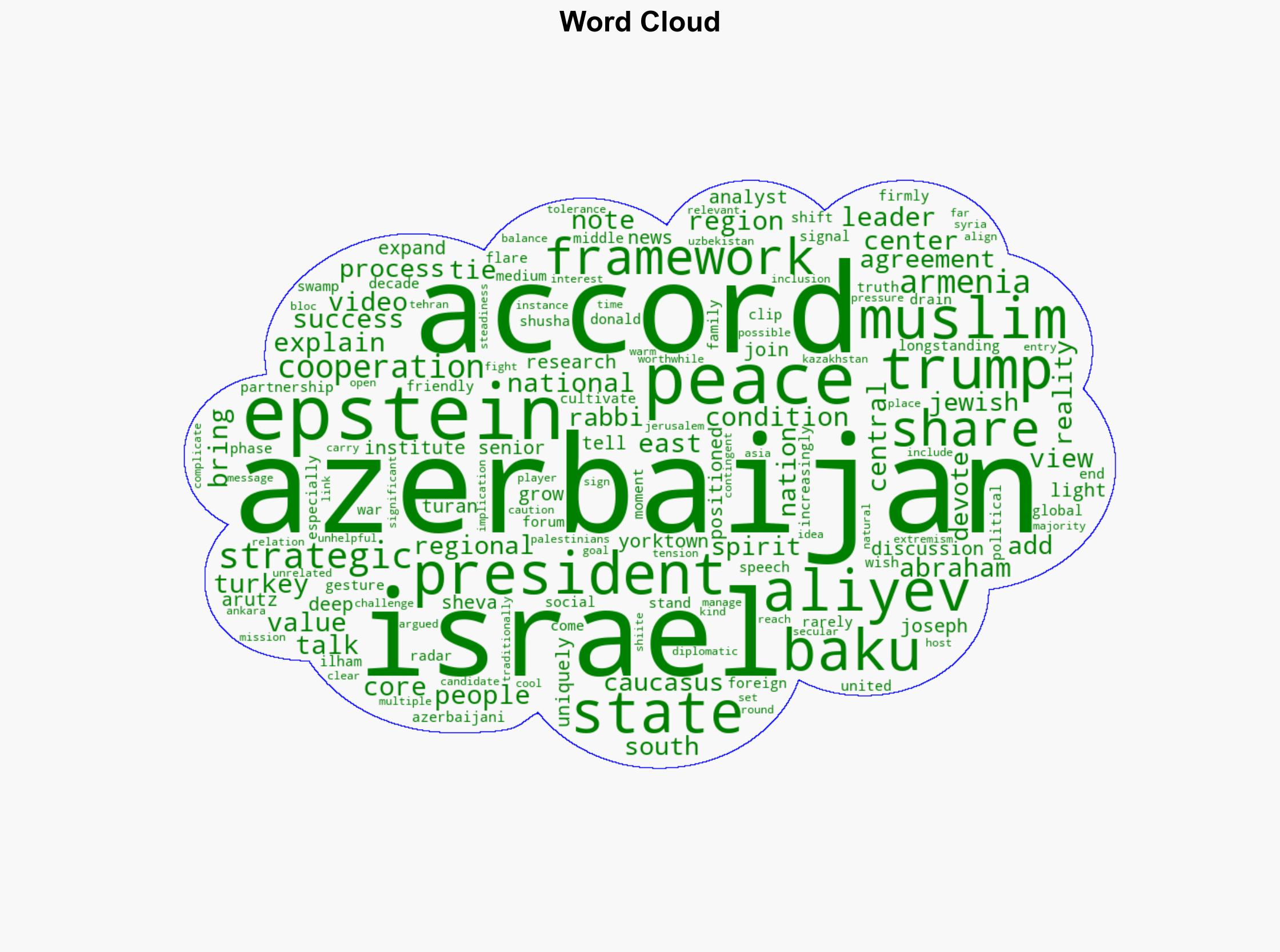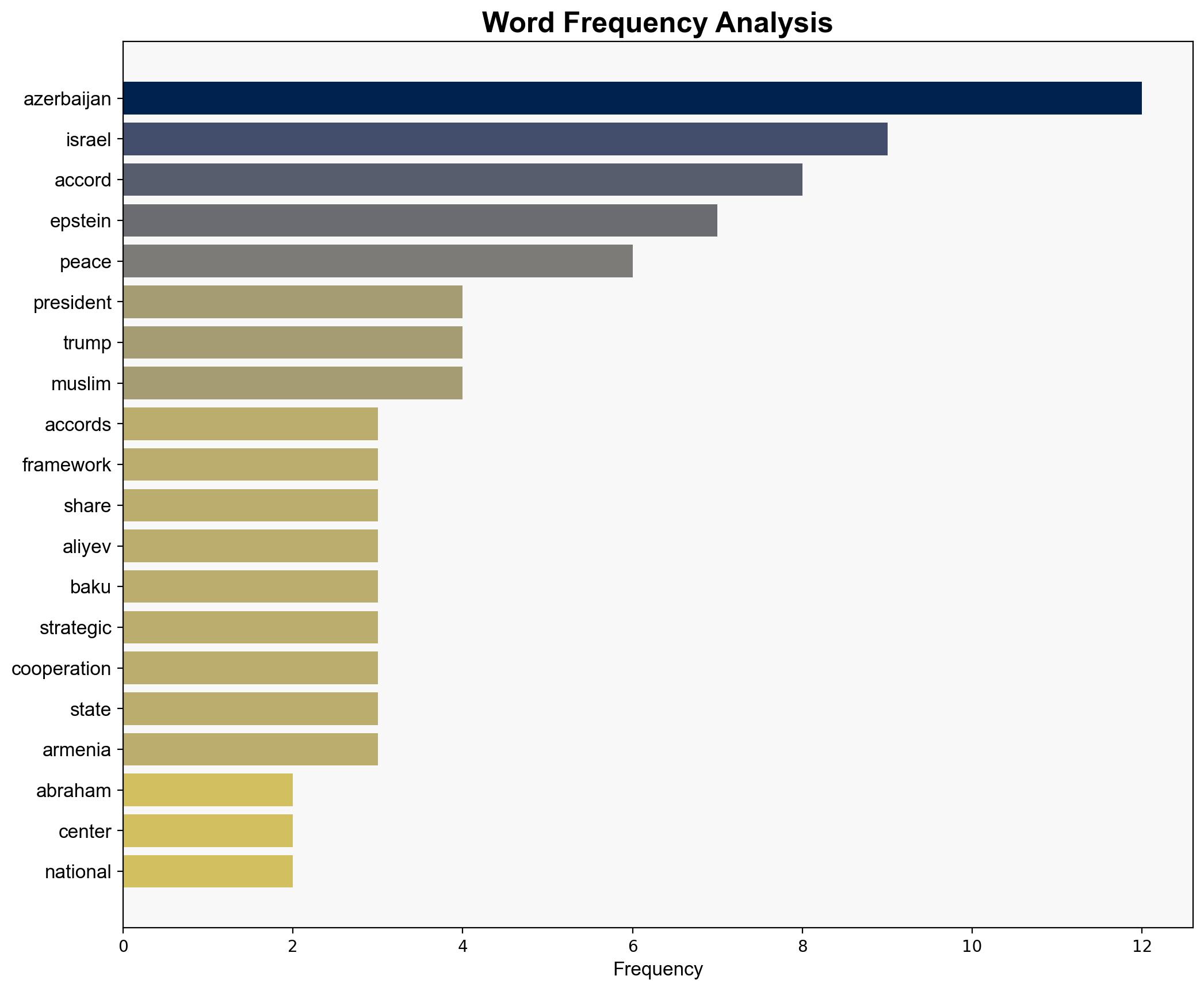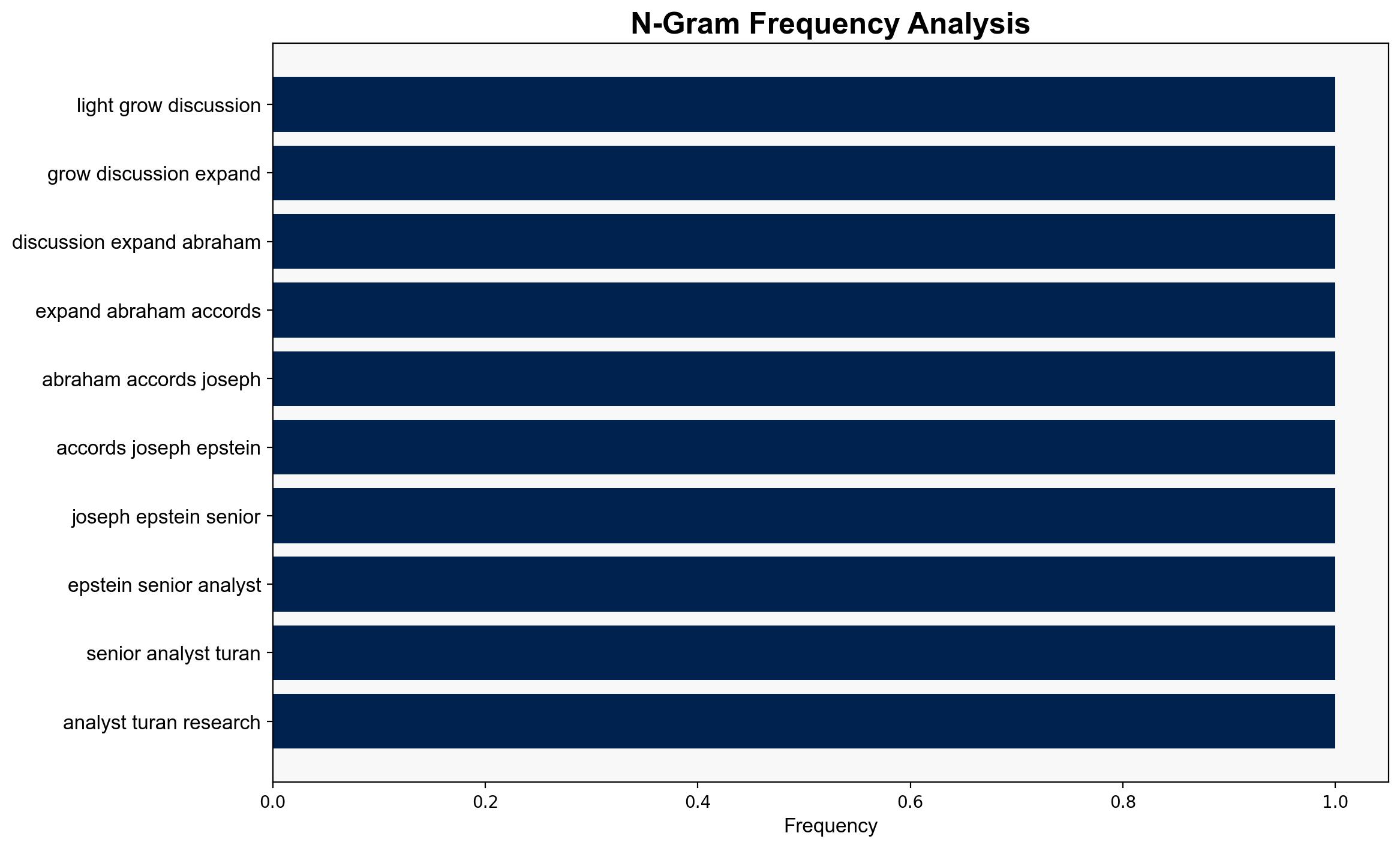Azerbaijans strategic ties with Israel make it a natural fit for the Abraham Accords – Israelnationalnews.com
Published on: 2025-07-27
Intelligence Report: Azerbaijans strategic ties with Israel make it a natural fit for the Abraham Accords – Israelnationalnews.com
1. BLUF (Bottom Line Up Front)
Azerbaijan’s inclusion in the Abraham Accords is strategically viable, given its longstanding ties with Israel and the potential to influence regional dynamics. However, the complexity of South Caucasus geopolitics and the unresolved Armenia-Azerbaijan conflict present significant challenges. Confidence Level: Moderate. Recommended Action: Engage in diplomatic efforts to facilitate Azerbaijan’s entry into the Accords, while addressing regional tensions to prevent destabilization.
2. Competing Hypotheses
1. **Hypothesis A**: Azerbaijan is a natural candidate for the Abraham Accords due to its strategic ties with Israel and potential to influence Muslim-majority states towards cooperation with Israel.
– **Supporting Evidence**: Longstanding strategic cooperation with Israel; Azerbaijan’s diplomatic balance between Turkey and Israel; potential to pressure Iran.
2. **Hypothesis B**: Azerbaijan’s inclusion in the Abraham Accords is unlikely to succeed without resolving regional conflicts, particularly with Armenia, which could undermine the Accords’ objectives.
– **Supporting Evidence**: Ongoing Armenia-Azerbaijan conflict; potential for regional destabilization; skepticism about linking peace processes.
Using ACH 2.0, Hypothesis A is moderately better supported due to existing strategic ties and regional influence, but Hypothesis B highlights critical unresolved issues that could impede progress.
3. Key Assumptions and Red Flags
– **Assumptions**: Azerbaijan’s strategic ties with Israel will outweigh regional conflicts; inclusion in the Accords will not exacerbate tensions with Armenia.
– **Red Flags**: Overlooking the complexity of South Caucasus geopolitics; potential backlash from Iran; assumption that regional peace processes can be decoupled.
– **Blind Spots**: The impact of domestic politics in Azerbaijan and Israel on foreign policy decisions.
4. Implications and Strategic Risks
– **Geopolitical Risks**: Potential escalation of Armenia-Azerbaijan tensions; Iranian countermeasures against perceived encirclement.
– **Economic Risks**: Disruption of regional trade routes if conflicts intensify.
– **Cybersecurity Risks**: Increased cyber threats from regional adversaries.
– **Psychological Risks**: Heightened regional nationalism and resistance to external diplomatic frameworks.
5. Recommendations and Outlook
- Facilitate dialogue between Azerbaijan and Armenia to address unresolved conflicts before formalizing inclusion in the Accords.
- Engage with regional stakeholders, including Turkey and Iran, to mitigate potential backlash.
- Scenario Projections:
- Best Case: Successful integration of Azerbaijan into the Accords, leading to enhanced regional stability and cooperation.
- Worst Case: Escalation of regional conflicts, undermining the Accords and destabilizing the South Caucasus.
- Most Likely: Gradual progress with intermittent setbacks due to unresolved regional tensions.
6. Key Individuals and Entities
– Joseph Epstein
– Ilham Aliyev
– Donald Trump
– Rabbi Marvin Hier
7. Thematic Tags
national security threats, cybersecurity, counter-terrorism, regional focus




